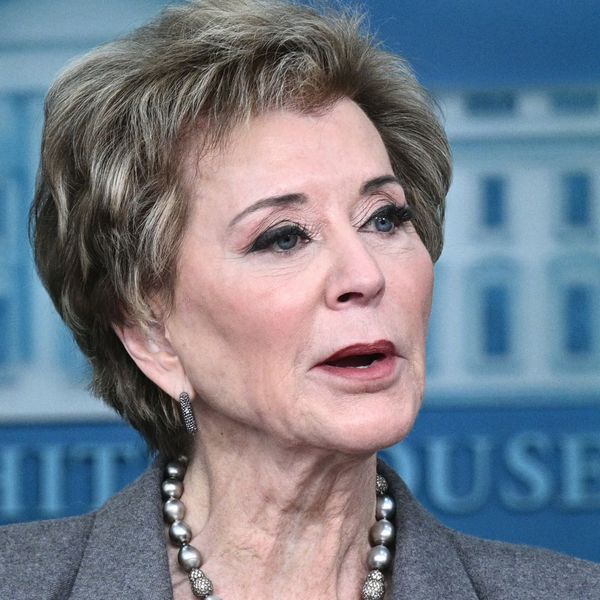When Hillary Clinton called for a constitutional amendment to overturn Citizens United v. FEC this year, it took a lot of folks by surprise considering the PACs and corporate leaders who donate to her campaign for the presidency, her paid Wall Street speeches, and her on-again off-again on-again off-again positions on the Transpacific Partnership (TPP) free trade deal. Despite Hillary Clinton being at the center of the Citizens United case, there are few if any candidates that have benefitted more from the decision.
It is important to understand that corporations had already seized first amendment rights before the Citizens United decision. In Buckley v. Valeo decision in 1976, the Supreme Court established that it believes that money is speech. Corporations spend money to advertise tobacco, guns and other dangerous products and policies over the objections of communities. They spend money to force GMOs into our food chain and keep consumers in the dark about it, denying climate science, and lobbying elected officials for corporate friendly policies to benefit their bottom lines at the expense of We the People. They spent money attaining religious rights, too. Overturning Citizens United alone will not solve the corporate usurpation of the First Amendment because money is speech. Corporations will continue to use that "speech" to impact our decisions on everything from purchasing to voting, just like they did before Citizens United.
Most of us can remember the state of campaign finance before Citizens United, if we care to stretch our minds back seven short years. Even with the McCain-Feingold legislation, which tried to address it, campaign spending was already through the roof. Citizens United completely blew the roof off of the house of campaign finance. There's no doubt Citizens United needs to be overturned, which can only be done through constitutional amendment, but simply reversing it still leaves We the People with a badly broken campaign finance system and an array of so-called constitutional rights for corporations in place; rights that were meant for human beings.
Passing an amendment to the Constitution is incredibly hard to do. It is imperative that the amendment actually solves the problem, not just part of it. Most people see the connection between big money and politics. What is less understood is that corporations have that right because in the 1800s the Supreme Court granted corporations equal protection under the 14 th amendment, originally passed to protect freed Black male former slaves.
Once corporations had equal protection under the law, they began to argue that other constitutional rights applied to them as well. Corporate lawyers set about acquiring more and more rights for the corporate form under the Constitution through the courts, until we found ourselves buried where we are now: up to our necks in corporate rule. The problem of corporate campaign spending is a symptom of the disease, not the disease itself.
Whatever excuse for an amendment Clinton may offer up, you can bet it won't do the job. Corporate media has done an excellent job of avoiding the topic of corporate constitutional rights in any context, never mind in their reporting of Citizens United. The majority of We the People are purposely misinformed. The myth that overturning Citizens United will somehow save the shreds of this democracy has taken hold among the public. It's easy for Clinton to play along because simply overturning it won't change much (remember pre-Citizens United).
There are numerous amendments in Congress now dealing with Citizens United; almost all of them focus on campaign finance and ignore corporate constitutional rights. Only the We the People Amendment addresses both doctrines at play: corporate constitutional rights and money as speech. The 2016 election may produce the first female president of the United States. So it is no small irony that an important lesson in passing constitutional amendments can be learned from the Suffrage movement.
In the late 1860s, the impending passage of the fifteenth amendment, giving Black men the vote, worked to divide the women's movement; many were abolitionists themselves and had been organizing alongside the abolitionists for the vote. (This is where the democracy movement is at the moment. We may not have settled on the exact demand, but we're all heading in the same direction.)
The governing elite, rich white property-owning men, were basically opposed to both ideas, but understood a concession was required in order to keep order, and began the process of breaking the women's movement through the politics of division. Women were excluded from the 15 th amendment language. (This game of divide and conquer is the most effective tool used by those at the top to maintain their power. Focusing the masses on one or the other, rather than both at once.)
Some women felt it important to step aside and let the 15 th amendment pass without the vote for women; others fiercely objected. The women's movement split, and the women on both sides of that argument lost in 1870. It was another 50 years before women were able to rebuild and gain the power to pass the 19 th amendment. Back then it was 'Women versus Men-in- Power.' Today it's 'We the People versus Corporations-in- Power.' The democracy movement must stand in solidarity against all corporate constitutional rights and for campaign finance reform -- simultaneously. The current corporate assault on our Constitution and the environment means we don't have 50 years to rebuild if We the People lose on either of these fronts.
President Obama made the same promise that Hillary Clinton recently made, in August 2012. He went on to do nothing about it. It is very likely that President Clinton 2.0 will do the same, if elected. We the people should not expect that campaign promise to be fulfilled. But just in case, we should be ready with the proper response: The We the People Amendment. Anything less is a waste of precious time.
Show your support for the We the People Amendment and sign the Motion to Amend.



